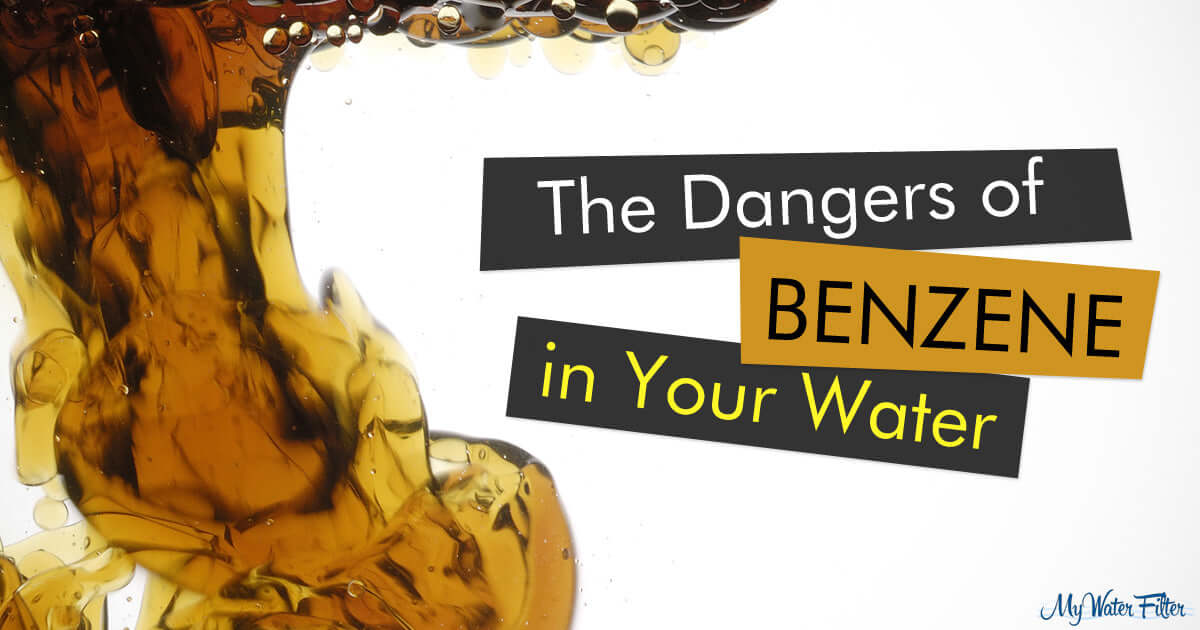Benzene is a helpful chemical found in petrol or crude oil and has several industrial uses. It is primarily used in making plastics, rubber, paints, pesticides, and medicines. While we appreciate the benefits of having those things, the last place we’d like to see Benzene is in our drinking water.
Did You Know Sodas May Contain Benzene?
Benzene is a substance that doesn't stay in the water too long and vaporises into the air quite easily.
That’s why the most common method of exposure in humans is through inhalation. Bacteria tends to convert this substance into other forms in the presence of adequate oxygen. Benzene is more common in soft drinks than in water and something not to be taken lightly.
While Benzene isn’t a huge concern, we need to be aware of the dangers and signs of its effects.
Effects of Benzene Exposure
Benzene intoxication in humans occurs mainly via inhalation. Exposure to significant levels of this substance has a direct and abrupt effect on the brain, leading to Dizziness Headache Nausea
Rarely does the same amount of exposure happen through the ingestion of benzene-contaminated water.
Nonetheless, long term exposure to small doses of benzene can cause slow damage to the body. Benzene’s long-term accumulation is usually due to occupational exposure or long-term ingestion of contaminated food or beverages. People who drink contaminated tap water or groundwater may be ingesting small amounts of Benzene and other contaminants without their knowledge.
This poses long term health effects that lead to irreversible diseases.
Drinking water that contains significant levels of Benzene can lead to cancer, and chronic exposure has adverse effects on your blood. Common diseases caused by gradual exposure are blood disorders like aplastic anemia and leukemia.
How Benzene Enters Our Water Supply
You’ll be pleased to know that rarely does Benzene contaminate Australia's drinking water supply.
Benzene is present in water sources but in extremely low concentrations.
Nonetheless, contamination is still possible in groundwater or water catchments close to coal mines and petroleum deposits. Waters exposed to petrochemicals can have significantly high levels of Benzene. Factories, landfills, and gas storage facilities can leak benzene into streams, contaminating community water supplies in the process. The Australian Government sets regulations in waste management and disposal to prevent environmental pollution and water contamination. It sets stringent rules for companies that process or produce toxic chemicals.
Does Your Water Have Benzene?
You will never know if your water is contaminated with Benzene simply by looking at it. Benzene is colourless and invisible to the naked eye.
You can only detect Benzene by its odour when in vast amounts.
Your best bet is to rely on your state's water utilities to do the job for you. The good news is that state laws require water distributors to monitor water quality in reservoirs and catchments regularly and take action in case of contamination.
Removing Benzene
With the right water filter, you can remove Benzene and many other chemicals. Granular carbon filtration and aeration stripping are guaranteed methods to remove Benzene, and keep it below the allowed maximum limit of 0.005 mg/L.
The solution is to install a high quality water filter at home to clean your water. Most people opt for a Benchtop Water Filter or Under Sink Water Filter.








